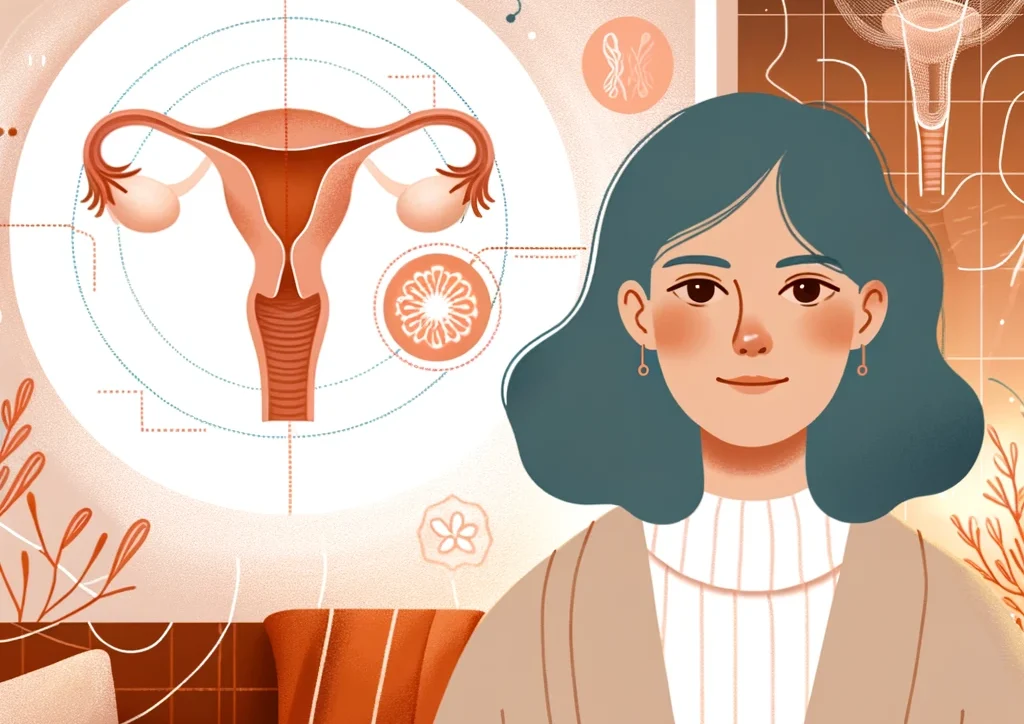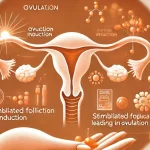Whatis the Corpus Luteum and how is it formed?
It corpus luteum is a temporary structure that forms in the ovaries after ovulation. During your menstrual cycle, when an egg is released, the follicle in which the egg was located is left behind. This remaining follicle transforms into the corpus luteum. This transformation is made possible by the hormones LH (luteinizing hormone) and FSH (follicle stimulating hormone). The primary purpose of the corpus luteum is to produce progesterone, a crucial hormone for maintaining a pregnancy-friendly environment in the uterus.
The action of the corpus luteum is short-lived, usually about 14 days, unless pregnancy occurs. While this body remains active, it secretes progesterone and to a lesser extent estrogen. Functions of progesterone include:
-
- The thickening of the uterine lining.
-
- Preventing further ovulation during the cycle.
-
- Supporting the early stages of pregnancy.
If no pregnancy occurs, the corpus luteum gradually disappears and the menstrual process continues. Below is a simple overview of the process:
| Phase | Action |
|---|---|
| After Ovulation | Corpus luteum formation |
| production | Progesterone and estrogen |
| None Pregnancy | Disappearance corpus luteum |
Why the Corpus Luteum is Essential for Fertility
- Production of progesterone: Crucial for the development of a healthy uterine lining.
- Supporting early pregnancy: Prevents premature menstruation.
| Hormone produced | Function |
|---|---|
| Progesterone | Preparing and maintaining the uterine lining |
| Estrogen | Supports further maturation of the uterus |
The role of the Corpus Luteum during pregnancy
It corpus luteum plays a crucial role during the early stages of pregnancy. After ovulation, the empty follicle in the ovary turns into the corpus luteum. This structure is responsible for the production of progesterone, a hormone that is extremely important for maintaining a pregnancy. *Progesterone ensures that the uterine wall remains thick and rich in blood vessels, which is essential for the implantation of a fertilized egg. Without the right amount of progesterone, the uterine wall would break down, resulting in a miscarriage.
In addition, the corpus luteum produces other hormones such as estrone and estradiol, although to a lesser extent than progesterone. The corpus luteum remains active until approximately the tenth to twelfth week of pregnancy. The placenta then takes over the production of these hormones. This lasting partnership between corpus luteum and placenta ensures a stable hormonal environment for the growing baby. Because of their collective efforts, mothers have all the support they can get from this small but mighty structure within their bodies.
| Hormone | Function |
|---|---|
| Progesterone | Maintaining the uterine wall |
| Estrone & Estradiol | Pregnancy support |
-
- Advantages: Supports pregnancy, prevents miscarriages
-
- Lifespan: Active until week 10-12 of pregnancy
Signs of problems with the Corpus Luteum
-
- Abnormal vaginal bleeding.
-
- Pain during the to make love.
-
- Excessive symptoms of PMS.
Regular check-ups can help identify these symptoms early. Compare the symptoms below to gain insight into possible differences between normal and problematic symptoms.
| Normal | In case of a problem |
|---|---|
| Regular menstruation | Irregular bleeding |
| Mild PMS | Severe PMS |
| Normal abdominal pain | Severe or one-sided pain |
Tips for a Healthy Corpus Luteum
-
- Power supply - Make sure your diet is rich in nutrients such as vitamins B6, C and E, as well as zinc and magnesium. These are essential for healthy hormone production.
-
- Hydration – Drink enough water every day. Not sufficiently hydrating can cause hormonal imbalance.
-
- Sufficient Rest – Chronic stress and lack of sleep can have negative effects on your hormones. Try to get at least 7-8 hours of sleep per night.
-
- Movement – Regular, moderate exercise helps keep your hormones in balance. Think of walking, yoga or swimming.
The corpus luteum, a structure in the ovaries that produces progesterone, plays a crucial role in your menstrual cycle and pregnancy. To keep it healthy, it is important to regularly check your hormone levels. This can help to detect problems early. Furthermore, a good intake of omega-3 fatty acids from fish oil or linseed can support the health of your corpus luteum.
| Tip | Rode |
|---|---|
| Regular check-ups | Early detection of problems |
| Omega-3 fatty acids | Supports progesterone production |
Conclusion
Thank you for reading our article about corpus luteum! We hope you now have a better understanding of what the corpus luteum is and why it is so crucial in the menstrual cycle and early pregnancy. At Midwives Lelystad we believe it is important to provide you with clear and reliable information, so that you can make well-informed choices about your health.
Do you have any questions or would you like to know more about this subject? Please do not hesitate to contact us. Our midwives are always ready to help and support you. Stay tuned for more interesting and useful articles around pregnancy, health and everything in between. Until next time!








